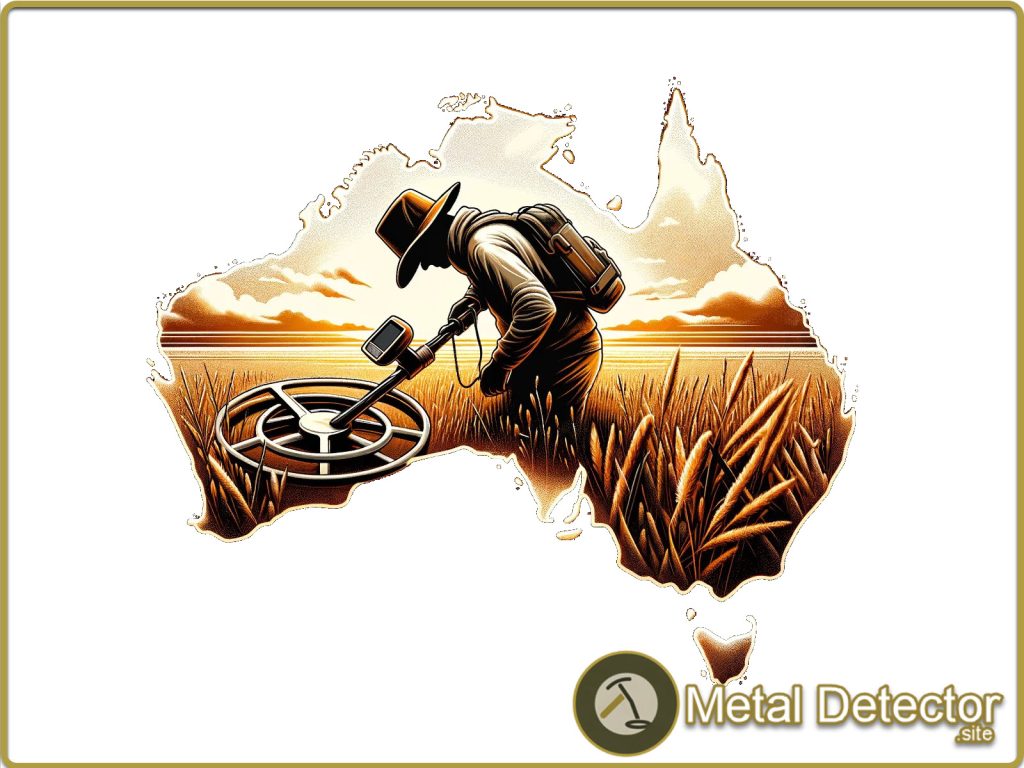In Australia, the need for a permit to use a metal detector largely depends on the state or territory you’re in, as well as the specific activities you intend to undertake. Below, you’ll find a breakdown based on my research.

Before we go any further, it’s important to recognise the term Fossicking, which you’ll see down under relating to the use of metal detector equipment.
Fossicking generally refers to searching for something, whether that’s a specific item or it could be a detail within a document.
Across Australia and New Zealand territory though, the term ‘prospecting’ is commonly used to describe hunting for materials in the ground, including those associated with detectorist activities and fossicking refers to the collection of samples from the ground.
The two terms are commonly used interchangeably though, and as we said, those are commonly understood definitions, rather than legally recognised terminology.
Licensing Requirements by State
Most Australian states require some form of a Fossicking License or Miner’s Right for metal detecting or fossicking.
This is generally affordable and allows for a legal framework to enjoy this hobby. Victoria, New South Wales, Queensland, Tasmania, and Western Australia all require licenses, with each state having its own specific requirements.
For instance, in Victoria, you would need a Miner’s Right, which is applicable for both adults and children, although children under 18 do not need a license if accompanied by an adult holding a Miner’s Right.
Here’s some links to what you need to know, by state:
| State | Detail |
|---|---|
| New South Wales (NSW) | NSW Government Guide |
| Northern Territory (NT) | NT Government Website NT FAQ |
| Queensland (QLD) | QLD Government Website |
| South Australia (SA) | SA Government Website SA Government Factsheet |
| Tasmania (TAS) | TAS Government Website |
| Victoria (VIC) | VIC Government Website VIC Government Guide |
| Western Australia (WA) | WA Government Website |
| Australian Capital Territory (ACT) | ACT Government Website (Spoiler: No fossicking allowed) |
Prospecting Areas
Certain areas are more conducive to metal detecting, especially for those interested in gold prospecting. The Golden Quest Discovery trail, towns like Kalgoorlie-Boulder, Kookynie, and Gwalia offer good opportunities.
It’s important to note that gold prospecting cannot be conducted in national parks, Aboriginal land, heritage sites, and nature reserves without proper authorization due to the Nature Conservation Act.
Beach and Underwater Metal Detecting
This activity is very popular in Australia, particularly during summer. Beaches like Bondi Beach, Byron Bay, and others are great spots.
For underwater detecting, locations like the Great Barrier Reef and various shipwrecks along the coast are notable.
However as previously noted, detecting is not allowed in national parks without consent, and in some cases, permits may be obtained for specific parks.
Before you set out with your metal detector, it’s crucial to check the specific regulations of the state or territory you’re in, obtain the necessary permits, and adhere to the local code of conduct to ensure a responsible and enjoyable prospecting or fossicking experience.

